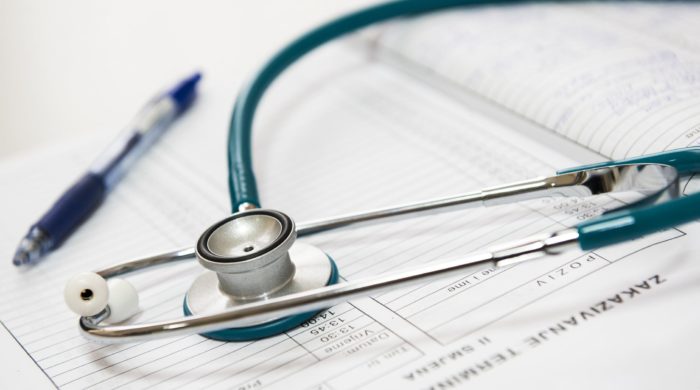One of the most effective ways to screen for colon or rectal cancer is with a procedure called a colonoscopy. Colonoscopies are important because they can detect cancers while they’re still treatable, and polyps (small growths) before they potentially develop into cancer.
Anyone 45 or over – or folks under 45 with a family history of colorectal cancer or polyps – should undergo the procedure.
Patients at average risk of colon cancer, with no family history, may be able to take a Cologuard or FIT test for their screening (ask your primary care provider if you’re eligible). If the test results are negative, a colonoscopy is not required. But if the test results are positive for potential abnormalities, a colonoscopy is the next step.
Read on to learn more about colonoscopies and their importance to your health.
Why Colonoscopies are Performed
Colonoscopies are performed to screen for abnormalities in the colon or rectum, which may include cancer.
A flexible tube equipped with a tiny video camera makes it possible for a doctor to view the interior of the colon. This visibility is crucial to detect and remove growths (polyps) in the large intestine and rectum, or to identify early stage cancer, when it’s easiest to treat.
Warning Signs of Colon Cancer
There are a number of symptoms that can indicate possible colon or rectal cancers. Many of the same symptoms could be signals of other, less serious issues, but it’s always better to be safe than sorry if you suspect cancer may be present.
The following symptoms are typically associated with colorectal cancer:
- Abdominal pains
- Bloating
- Chronic fatigue
- Blood in stools
- Narrow/thin stools
- Diarrhea
- Constipation
- A change in bowel habits
- Weight loss
- Cramps
So, how do you know when to get a colonoscopy? If you suffer from any of the symptoms from the list above for an extended amount of time, or if the symptoms become severe, it’s time to call a doctor and schedule the procedure.
How to Prepare for a Colonoscopy
Whether you’re having the procedure because you’re suffering from symptoms that point to cancer or you’re just going in for a routine check-up due to age or family history, the preparations for a colonoscopy will be the same.
Clear your calendar because in the days leading up to the procedure you’ll need to prepare for the appointment, and you should be at home to focus on that.
A few days before the colonoscopy you’ll want to modify your diet and eliminate the amount of high fiber foods you consume. That means you should not eat dried or raw fruit, seeds, nuts, whole grains, beans, brown rice or raw vegetables. You’ll also want to adjust your regular medications or stop taking them altogether (your doctor will advise you on which medicines, if any, are safe to continue).
The day before the procedure you’ll need to switch to a purely clear liquid diet. This should consist of soup broth, gelatin, coffee or tea, clear drinks, popsicles, water and juices without pulp (such as apple juice).
The night before the colonoscopy you’ll be required to drink a prescribed bowel-cleansing liquid that will cause diarrhea. As unpleasant as this sounds, it’s a vital step to ensure your body is clear for the colonoscopy. Be sure to wear loose clothing, stay near the restroom and prepare with medicated wipes to soothe your skin afterward.
The day of the procedure you’re only allowed to continue the liquid diet until two hours prior to the exam. This guideline must be strictly followed.
Read our Colonoscopy Prep FAQ
How a Colonoscopy Procedure Works
When you arrive for your exam, you’ll change into a gown and be given anesthesia and/or a sedative to minimize discomfort.
Once you’re settled, the gastroenterologist will ask you to lay on your side and draw your knees to your chest so the colonoscopy tube can be inserted easily into your rectum. The tube will inflate your colon with air or carbon dioxide to provide your medical professional with a better view of your colon lining.
Simultaneously the small camera on the end of the tube will transmit photos to a monitor for the doctor to view. If necessary, the doctor may also insert instruments to take tissue samples and/or remove abnormal tissue or polyps that are present. The procedure itself takes approximately 30 – 60 minutes.
Following your colonoscopy you’ll need someone to drive you home, as you’ll still be mildly sedated. There could be bloating or minimal bleeding following your exam and this is completely normal. However, if blood continues to pass or is accompanied by fever or abdominal pain, consult your doctor immediately.
Your doctor will share the results of the colonoscopy with you and provide a recommendation for when to get your next exam. Or, to schedule a follow-up appointment if any abnormalities were found.
See a Medical Professional
Western Washington Medical Group’s Gastroenterology and Endoscopy physicians perform colonoscopies and other GI procedures to support our patients’ digestive and overall health. Request an appointment with a WWMG Gastroenterologist today.
